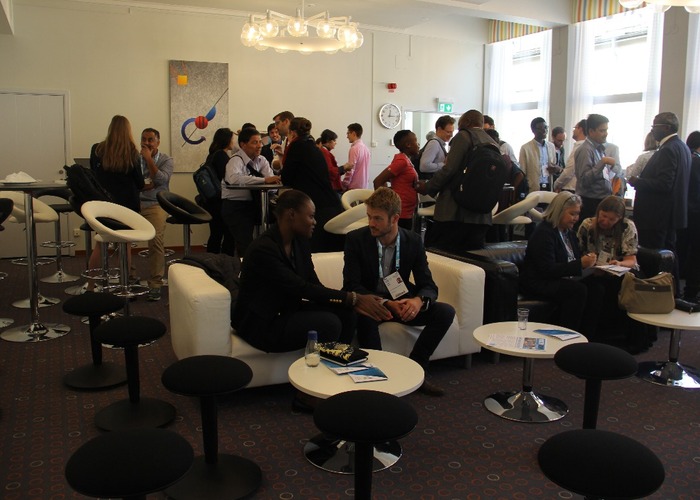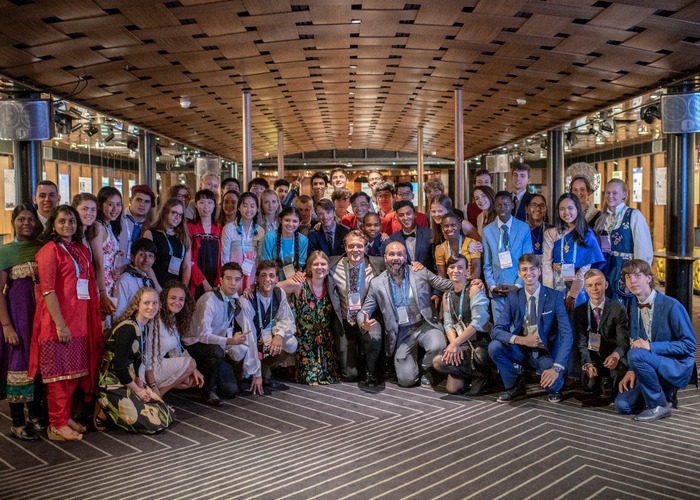Ugandan MP appeals on SDGs
“In the villages, we have springs and wells as water sources, but they are far from the residences making it hard for persons with disabilities to go and fetch the water. This poses risks especially to female PWDS such as sexual abuse."
A Ugandan legislator Safia Nalule Juuko, the MP representing People Living with Disability in Central Uganda has warned participants at annual World Water Week in Stockholm, Sweden that unless governments consider needs of the disabled regarding water, sanitation, and hygiene (WASH), Sustainable Development Goal six (SDG6) will not be met.
Nalule was speaking on Monday morning at the opening of the annual World Water Week, hosted and organized by Stockholm International Water Institute (SIWI) at Tele2Arena in Stockholm, Sweden.
Under the theme "Water for society - including all", World Water Week 2019 taking place from 25-30 August is the leading annual global event for concretely addressing the planet's water issues and related concerns of international development.
Nalule applauded the organizers for inviting her to the event because it signified commitment for the inclusion of PWD's needs in the water and sanitation hygiene (WASH) area.
"On behalf of one billion persons with disabilities in the world, and the 800 million persons with disabilities in the developing world, I would like to request all water actors from this conference to go back and implement a disability-inclusive wash," she advised.

"It's very easy, map out where persons with disabilities are, work with organisations of disabled people, budget for them, design technologies with them, and then you will be there. And unless you do that, you will not realise SDG number six," she warned.
According to the UN, sustainable development goal six is to ensure availability and sustainable management of water and sanitation for all, but despite progress, billions of people still lack safe water, sanitation, and handwashing facilities. Data suggests that achieving universal access to even basic sanitation services by 2030 would require doubling the current annual rate of progress.
Nalule further pointed out that in Uganda, 23million out of the 42million population do not have access to clean water, 99% percent of whom are PWDs.
"In the villages, we have springs and wells as water sources, but they are far from the residences making it hard for persons with disabilities to go and fetch the water. This poses risks especially to female PWDS such as sexual abuse. Other risks generally include death from drowning, falling into pit latrines because places without water do have water-borne toilets, et cetera. I call upon partners to work with disabled people because they know their own problems better," she said.
Furthermore, she applauded the Ugandan government for actually making favourable legislation for PWDs, such as elections of representatives of persons with disabilities.
Nalule advised all the WASH actors present at the convention to ensure that policies, laws, and regulations are disability-inclusive.
Speaking at the same event, Peter Eriksson, the Minister for International Development Cooperation, Ministry of Foreign Affairs, Sweden stated that as the population increases, it is using more natural resources.

"Pollution and quality of water are among our major challenges. We have reached a point to no more wastewater resources if we want to preserve the globe," he says.
Furthermore, Dr. Jackie king, UN special rapporteur made a speech on enhancing the role of indigenous people. She called for more inclusive WASH governance for indigenous people. She also called more involvement of women in WASH governance. She insisted that the participants use the convening power of women to provide solutions for water challenges.
Leaders and experts from the world's scientific, business, government, and civic communities convene annually in Stockholm to exchange views, experiences and shape joint solutions to global water challenges. World Water Week 2019 has attracted over 3000 participants from all over the world.
Functioning as an open and dynamic platform, the World Water Week enables participants to build capacity, form partnerships and review implementation, thereby advancing the world's water, environment, health, livelihood and poverty reduction agendas.